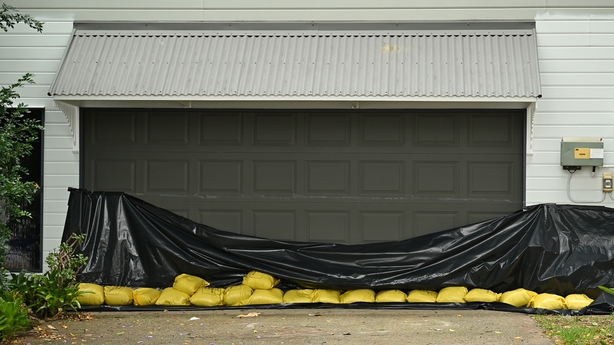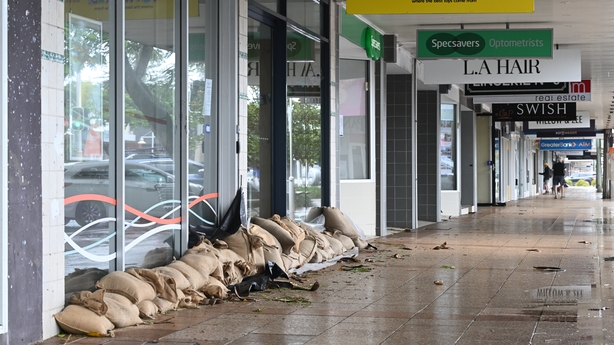The outer fringe of a tropical cyclone has started to hit eastern Australia, bringing heavy rains and record-breaking waves to a heavily populated region rarely hit by typhoons.
Tropical cyclone Alfred was 285km east of Brisbane after unexpectedly slowing above the Coral Sea overnight, government forecasts said.
Some four million people are in areas along a 400km stretch of coastline expected to see the worst of the storm.
"We're already seeing gales developing on the coastal fringe," Bureau of Meteorology forecaster Sarah Scully said.
"There have been very large waves and powerful swells. That's generated by Alfred lingering in the Coral Sea and creating a whole lot of wave energy," she added.
A 12.4-metre wave was recorded on the Gold Coast south of Brisbane, Ms Scully said, the largest swell ever picked up by that monitoring station.

Tropical cyclone Alfred was initially forecast to make landfall in the evening, but is now expected to arrive tomorrow afternoon or even early Saturday morning.
While this gave coastal hamlets more time to stack sandbags and stockpile food, Ms Scully warned it also left them exposed to wild weather on the storm's outer edges.
"It will mean that the coastal areas are exposed for a longer period of time," she said.
Some towns had already seen "well over" 200mm of rain, the forecaster added.
Alfred would cross the coast somewhere near the bustling metropolitan hub of Brisbane, the weather bureau said.
It would be the first cyclone to make landfall in the area for more than 50 years.
"There's a lot of people in harm's way here. We're talking about something like four-and-a-half million Australians," said senior government minister Jim Chalmers.
"It's rare for a cyclone to be this far south and to threaten such a huge population area," he added.

American rapper Ice Cube was caught in the storm ahead of scheduled concerts in southern cities Sydney and Melbourne.
Speaking to Australia's Channel 10, he said: "I'm staying clear of it. I haven't been through a cyclone before.
"I can check this off my bucket list for sure.
"I'm right here on the beach.
"The beach looks like it is going to be in the lobby in a minute."
Strong winds knocked out power to more than 4,000 homes, utility company Essential Energy said.
More than 900 schools across Queensland and the flood-prone northern rivers region of New South Wales are closed, education department officials said.
While cyclones are common in the warm tropical waters lapping Australia's northern flank, it is rarer for them to form in cooler waters further south.
Tropical cyclone Alfred would be the first to make landfall in that part of Australia since 1974, the Bureau of Meteorology said.
Researchers have repeatedly warned that climate change amplifies the risk of natural disasters such as bushfires, floods and cyclones.
We need your consent to load this rte-player contentWe use rte-player to manage extra content that can set cookies on your device and collect data about your activity. Please review their details and accept them to load the content.Manage Preferences

